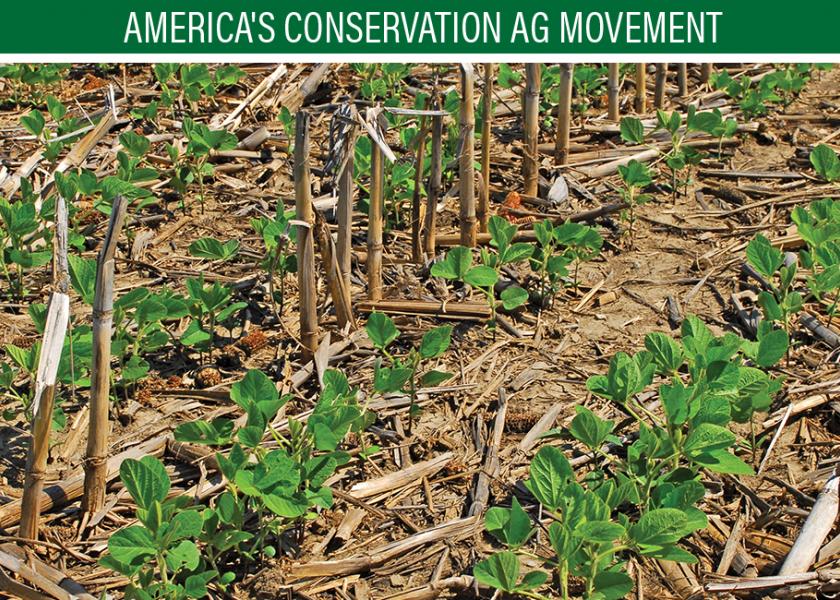New Program Pays Farmers For Carbon Sequestration

Building trust in food begins with empowering farmers through one of the largest and most diverse conservation- and sustainability-focused public-private partnerships in our nation’s history: America’s Conservation Ag Movement. To find the latest news and resources related to the Movement, visit AgWeb.com/ACAM.
You might not think of carbon as a crop but keeping it in your fields and out of the environment could give you another source of revenue – thanks to a new pilot program from Bayer AG.
Called the Bayer Carbon Initiative, the program will compensate growers who sequester carbon in their soils through the use of cover crops and no-till in 2020-2021. The company may add other carbon sequestering practices in the years ahead, according to Lisa Safarian, president of Bayer Crop Science North America.
“We wanted to get the word out now, as people start making a plan for cover crops in the fall and planning their practices for next year,” she says.
The program places Bayer among the first companies to develop what it describes as a transparent, science-based and collaborative approach to a carbon market in agriculture.
“As we scale the program, more farmers can participate and be rewarded by us and other companies as well by using climate-smart carbon practices,” Safarian says. She adds that Bayer has made a sustainability commitment to reduce its greenhouse gas emissions 30% by 2030 and has been working on the carbon initiative for the past several years.
Farmers who want to participate in the pilot program will be required to commit a minimum of 10 acres to it. There is no acreage cap.
Along with the minimum acreage requirement, farmers will need to enroll in the company’s Climate FieldView platform, which enables collection of the data that will be used for the calculation of carbon sequestration. Though the company will evaluate the amount of carbon sequestered, farmers will be compensated based on the number of acres they commit to the program. Bayer says farmers will retain ownership of their data and control who they choose to share that data with.
Participating farmers will be paid through the Bayer PLUS Rewards program. They will be able to redeem their rewards for cash or credits toward product purchases. Growers are not currently required to purchase Bayer products to participate in the program.
For the first year, Safarian says the pilot program will include about 1,200 farmers in the U.S. and Brazil. The company is collaborating with partners such as Embrapa in Brazil to build a viable carbon market for farmers.
Safarian says as Bayer learns more from the pilot program, the company will be able to take those learnings and feedback to improve growers’ experience as it expands the initiative more broadly in the U.S.
Farmers interested in learning how they can participate in the Bayer Carbon Initiative can contact their local Bayer representative or retailer.
Want more insights into sustainability initiatives? Join in at Farm Journal Field Days, where you’ll find resources for business, agronomy, conservation agriculture, machinery and more! Registration is free at FarmJournalFieldDays.com/register
Read More:
#FarmON Concert with Lee Brice to Focus on Hard Work of 4-H’ers







